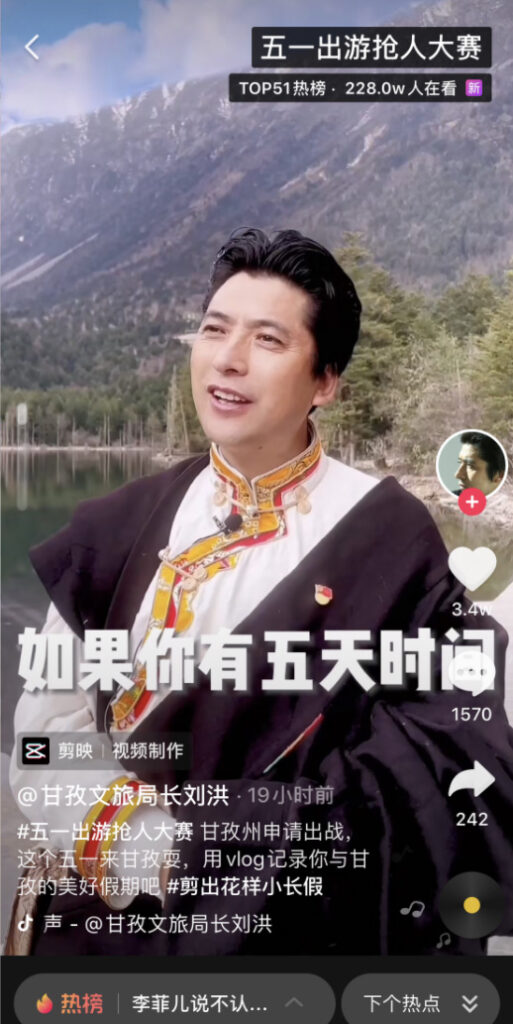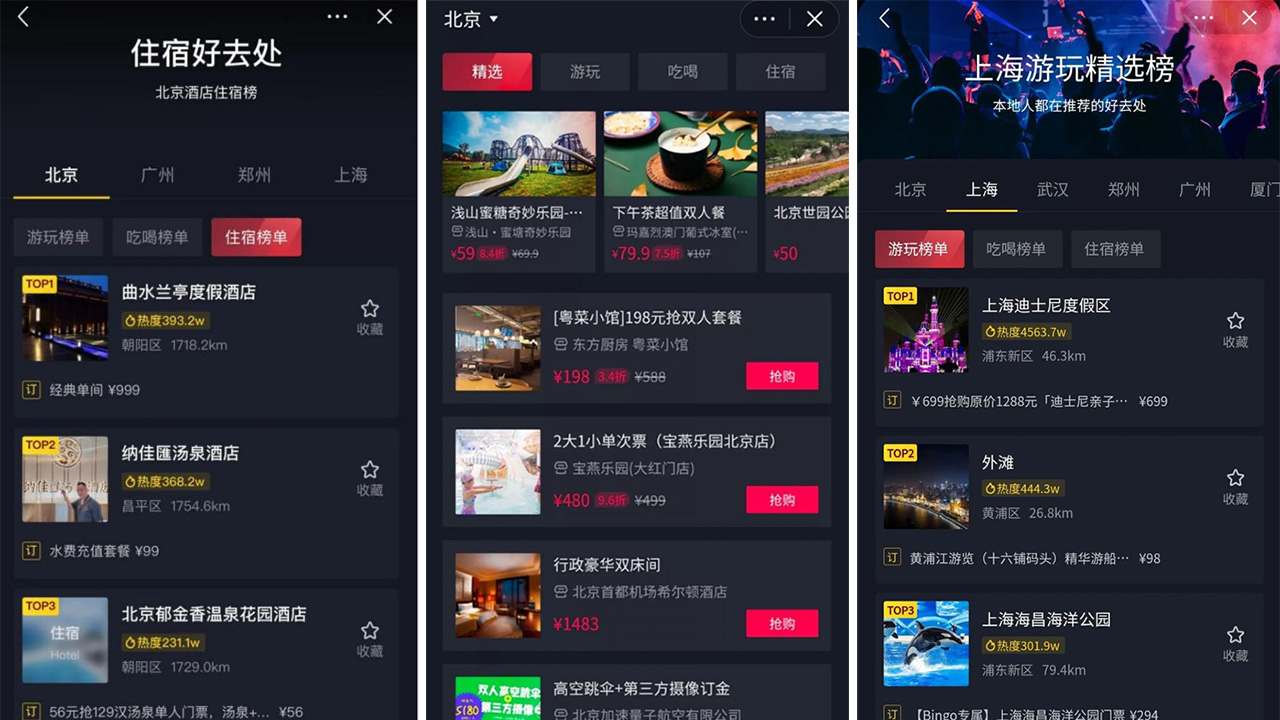Douyin won itself a sizable chunk of Chinese netizen attention by mastering binge-able short-video content. Now, it’s striving to monetize the 600 million users said to log in and scroll daily.
Back in May, Douyin made a furrow into the travel market with in-app Mini Program, Mangosteen Travel (山竹旅行), a portal for hotels, agencies, and cultural attractions to present themselves and for users to browse and book.
The trial phase included eight Chinese cities with travel videos offering popular attractions, restaurants, and hotels, and the option to purchase group travel packages in the respective cities. The procedure was straightforward; once in the Mangosteen Travel section, if a video piqued a Douyin user’s interest, they could click a location icon to learn more and make a booking via other online travel agencies (OTAs) such as Ctrip and Tongcheng-Elong.
A month into operations, Mangosteen Travel disappeared from China’s top short-video app, potentially ahead of an official launch later this year. All the same, its appearance questioned how short-video content will reshape consumer behavior and, with it, the established OTA landscape.
Douyin’s interest-based e-commerce
Douyin’s transition to travel is a logical progression. In April, the Beijing-based company declared its intention to pursue “interest-based e-commerce,” through which consumer video watching preferences are monetized. With 147 million travel-related searches in 2020 and the number of videos increasing 143 percent year-on-year, it’s an interest that ranks highly.

Initiatives like its May Holiday Travel Competition signal Douyin’s ambitions in the travel sector. Image: Kr-asia
Beyond passive consumption, the habit of tourists posting holiday highlight reels from local restaurants and scenic spots is well established — in 2020, more than 700 travel-related videos received 10 million views. In turn, ByteDance has partnered with travel stakeholders from hotels, to natural parks such as Hunan’s Zhangjiajie, to cultural institutions such as the Forbidden City to launch livestreams and promote their tourism offerings on one of China’s most popular and dynamic platforms.
Chinese netizens have moved away from search engines as the starting point for travel inspiration and towards “organic” discovery via social media content (a 2020 Big Data Research report showed 54 percent of consumers based travel decisions on the social media posts of Key Opinion Leaders). Douyin wants in and doing so entails creating a seamless, closed e-commerce loop whereby users share, discover, and purchase travel experiences inside the app.
Douyin is not alone in this drive. Short-video competitor, Kuaishou, signed with OTA Tongcheng-Elong last year allowing users to book travel products through videos on its platform and shopping recommendation platform Little Red Book (小红书), paired with China’s Airbnb equivalent, Xiaozhu Minsu (小猪民宿), to the same effect. Still, based on its market size and user profile, Douyin has considerable advantages.
Competing with the OTAs
China’s OTA platforms can broadly be divided into two camps: the traditional sales-oriented platforms such as Ctrip, Alibaba’s Fliggy, and Tongcheng-Elong; and platforms focused on user-generated content that serve as popular references for tourists such as Mafengwo and Qyer.
The more traditional branch has realized the value of content in shaping and encouraging consumer behavior and has focused on developing their own content communities — Ctrip, for one, invested in content creation by devising campaigns devoted to popular sub-categories (i.e. rural travel and parent-child travel) and also launched Planet Flagship Store through which tourism stakeholders can post travel content on official accounts.
The user-centric OTAs are largely focused on partnerships seeking to monetize their position in China’s tourism industry as trusted sources of information.
These developments question ByteDance’s ability to create a closed e-commerce loop on Douyin. It may have the content, algorithms, and user base, but it lacks the in-app functionality to offer the broad sweep of products tourists want. Traditional OTAs have become one-stop platforms offering users everything from flights and hotel rooms to visa applications and insurance.
Until now, clicking on an appealing Mangosteen Travel video would lead a user to a third party, and that, it goes without saying, is hardly the game plan.
Edited by Richard Whiddington
Ashley Dudarenok is a China marketing expert and the founder of social media agency Alarice and ChoZan, a company offering China insights and digital training.



